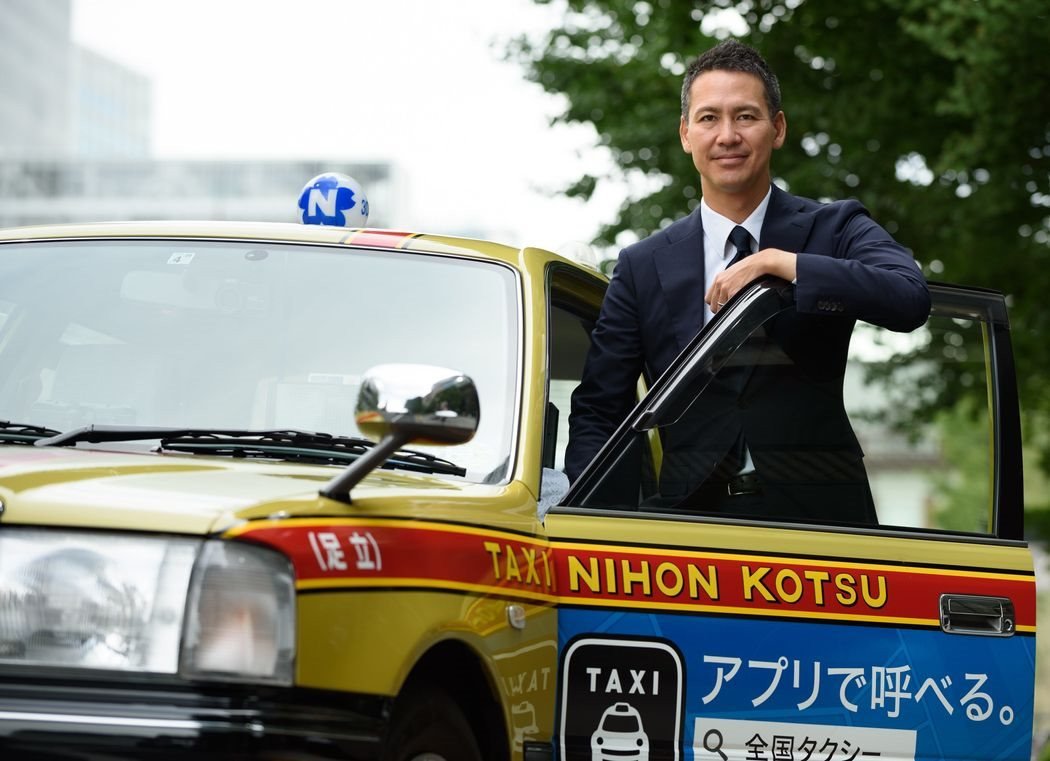Strange story in Japan: The 100-year-old taxi company beat Uber, the US giant lost hands before the ‘taxi prince’
- Tram Ho

Uber was “overtaken” in one of the world’s largest taxi markets by a man known as the “Taxi Prince of Japan”.
Ichiro Kawanabe is currently the president of Japan’s largest taxi company, founded by his grandfather nearly a century ago. Industry insiders say that over the past decade, the taxi empire has played a key role in keeping Uber out of its dominant position in the $17 billion market.
First, he lobbied to make ride-hailing apps work only with licensed Japanese taxi companies. Kawanabe then started creating his own taxi app called Go, and several taxi operators say he pushed them to avoid partnering with Uber.
Go says it now controls nearly three-quarters of the Japanese ride-hailing market. The rest is divided equally between Uber and two other companies. Go recently attracted investment from Goldman Sachs.
“Go is designed specifically for the Japanese market and to operate within that regulatory environment,” said Stephanie Hui, co-president of global capital growth at Goldman Sachs.
Uber says it is investing and growing in Japan, including the success of its Uber Eats business. This market will continue to be a large part of its global campaign.
Domestic companies in other foreign markets have also had success in competing with Uber after seeing their success in the US.
In South Korea, authorities have banned Uber-style private ride-hailing, and domestic app Kakao Taxi has emerged to dominate the market. Some other domestic companies have even “evicted” Uber from their countries as in some Southeast Asian countries and China.
Uber’s global reach has long been known as a formidable competitive advantage, especially when compared to rival Lyft, which is focused solely on the US market. Uber has invested billions of dollars in its global expansion plans and has emphasized its goal of bringing the entire world’s taxis to its app by 2025.
They also closed a deal last year to bring all taxis in New York to the app and have built up significant market share in the UK, Latin America and a few other regions. However, in a few countries, Uber is still struggling.
Uber currently does business in more than 70 countries. 2 countries including the US and Canada account for 3/5 of revenue.
In addition to running the family taxi company, Kawanabe, 52, now leads Japan’s main taxi industry organizations and is married to the niece of the former Japanese prime minister. He also understands American businesses very well thanks to an MBA from Northwestern University and a time working at the consulting firm McKinsey.
The “taxi prince” is known to be extremely quick-witted, and he has gone far beyond the competition.
In 2020, Kazutaka Tomita – president of another leading Japanese taxi company signed a contract with Uber. Immediately, Kawanabe invited Tomita to a meeting at the office in Tokyo, where a bust of the co-founder of the Kawanabe empire was placed outside the entrance.
Kawanabe told Tomita he needed to withdraw his drivers from Uber or give up his position as Chairman of the Commission in the industry organization. Tomita chose to stick with Uber and he lost that position.
Uber entered Japan in 2014 with a lobbying attempt to convince the government to accept the private ride-hailing model. Kawanabe argued at the time that Uber’s disruptive model would bring trouble to a country where riders expect drivers to wear white gloves in spotless clean cabs. Regulators in Tokyo agreed. In 2018, Uber boss Dara Khosrowshahi said the company would comply with current Japanese regulations and seek to get licensed taxis to sign up for the app.
People familiar with the matter say the company has in some cases spent up to four years negotiating partnerships, sending employees to remote taxi garages to convince their drivers and bosses .
With support from Tomita and several other taxi companies, Uber has made inroads, especially as foreign tourists flooded into Japan after reopening last fall. In April, their sales increased fivefold compared to the same month of 2019.
“We’re seeing very strong growth in Japan at the moment, and we can work together at a pace where we can support that growth,” said Go President Shiro Yamanaka. However, Go is still easily at number 1 with the locals.
Hui, the Goldman banker involved in the Go investment, estimates that about 15% of taxi rides in Japan are booked through the app, up from about 5% in 2020. Within six years, Goldman forecasts the number that would increase at least around 30% to 40%.
Industry insiders say the “taxi prince” has spurred others in the industry to stick together, where CEOs often talk to each other and deals evolve based on oral agreements, follow-up Kawanbe attitude and stay away from Uber.
Masato Nakasawa, who has been a taxi driver in Tokyo for more than two decades, said he is not eager to drive for a fleet operator tied to Uber after what he heard from the industry leader. “Japanese people are quite wary,” Nakasawa said. “The remarks of a major taxi company executive clearly carry weight”.
In May, a funding round led by Goldman Sachs valued Go at $1 billion, two and a half years after it was launched. Go plans to list its shares in Tokyo in the next few years.
Now, after years of “taxi prince” challenging Uber’s honesty, the two sides are reducing the controversy. In January, Uber’s Yamanaka and Go’s Nakajima met for dinner at a restaurant near their offices, located on opposite sides of a highway in central Tokyo.
Yamanaka said he appreciates what Uber’s competitors have done to build the market. “The pie itself is getting bigger,” he said. “Having more players in the market is a good thing – it helps us focus on innovation.”
Source: WSJ
Source : Genk
